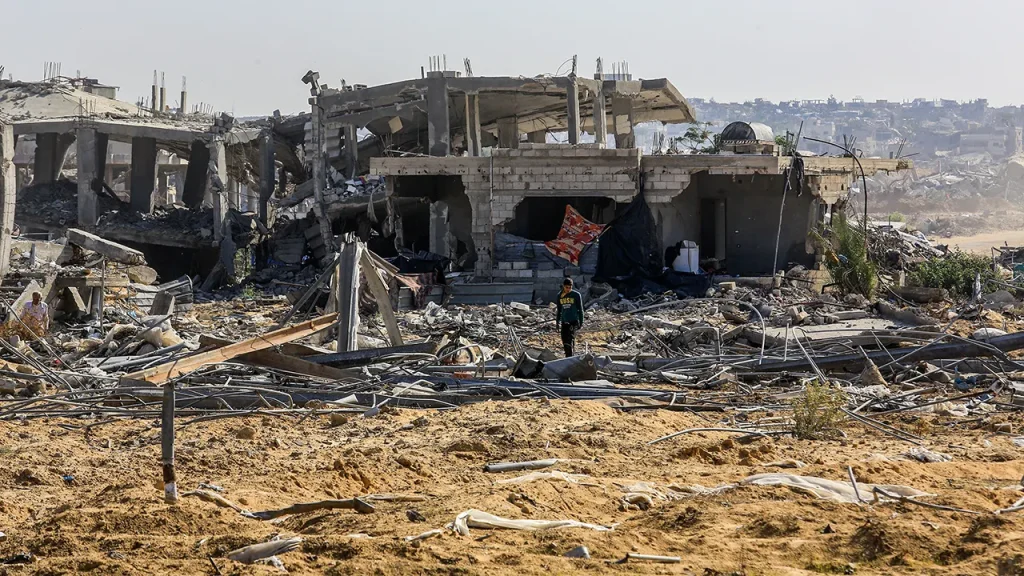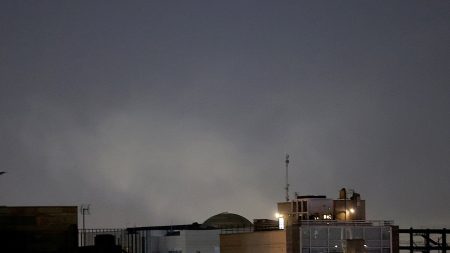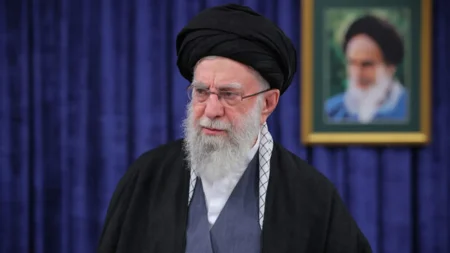Israel Strikes Gaza After Reported Ceasefire Violation, Calls for Regional Cooperation
Israel launched airstrikes against Hamas targets throughout Gaza on Wednesday following what they described as a violation of the ceasefire agreement that had been in effect since October 10. According to the Israel Defense Forces (IDF), the military action was triggered when “several terrorists opened fire toward the area where IDF soldiers are operating in Khan Younis.” The IDF emphasized that no Israeli troops were injured in the incident but stated they would “continue to operate to remove any imminent threat.” This resumption of hostilities marks a significant setback in the fragile peace process that had offered a brief respite from the ongoing conflict in the region.
The Israeli military also reported striking a Hamas training compound in southern Lebanon on Monday. The IDF described the facility in the Ain al-Hilweh area as one “used by Hamas terrorists for training and exercises in order to plan and carry out terrorist attacks against IDF troops and the State of Israel.” The military claimed they had taken “several steps to mitigate harm to civilians” before conducting the strike. This expansion of operations into Lebanon indicates the conflict’s regional dimensions and Israel’s determination to target Hamas capabilities beyond Gaza’s borders, raising concerns about a potential wider escalation in the Middle East.
In a notable diplomatic development, Israeli Prime Minister Benjamin Netanyahu extended what appears to be an olive branch to neighboring nations, calling for cooperation in addressing the Hamas threat. “Israel extends its hand in peace and prosperity to all of our neighbors and calls on them to normalize relations with Israel and join us in expelling Hamas and its supporters from the region,” Netanyahu’s office stated on social media platform X. This appeal for regional partnership represents an interesting strategic shift, seemingly aimed at isolating Hamas while potentially expanding the Abraham Accords framework that had previously normalized relations with several Arab states under the Trump administration.
The timing of Netanyahu’s outreach coincides with a significant diplomatic victory for Israel, as the United Nations Security Council (UNSC) recently endorsed President Donald Trump’s peace plan for Gaza. The plan, which was adopted on Monday, outlines a framework to end the war and deploy an international stabilization force to the region. This rare show of support from the United Nations, which has often been critical of Israel’s military operations in Gaza, suggests a potential shift in the diplomatic landscape. The international community appears increasingly focused on finding sustainable solutions to the long-standing conflict, though the practical implementation of such plans remains challenging given the complex regional dynamics and deep-seated hostilities.
The recent ceasefire, which began on October 10, had offered a temporary pause in the intense fighting that has devastated Gaza and caused significant casualties on both sides. However, this latest violation and subsequent Israeli response demonstrate the extreme fragility of any peace agreement between the parties. For civilians caught in the crossfire, these developments represent yet another disheartening setback in their hopes for lasting peace and stability. The cycle of violence continues to inflict immense suffering on ordinary Palestinians living in Gaza, who face severe humanitarian challenges amid damaged infrastructure, limited access to essential services, and the psychological trauma of prolonged conflict.
As the situation evolves, questions remain about the viability of Trump’s peace plan and whether regional players will respond to Netanyahu’s call for cooperation against Hamas. The international community faces significant challenges in brokering any lasting solution that addresses Israel’s security concerns while also ensuring humanitarian protections and political rights for Palestinians. The involvement of neighboring countries, international peacekeepers, and diplomatic pressure will be crucial factors in determining whether this latest round of violence represents another chapter in an endless conflict or potentially creates an opening for meaningful progress toward a more stable and peaceful Middle East. For now, IDF troops remain deployed throughout the region, and civilians on both sides continue to live with uncertainty about what the coming days and weeks might bring.














